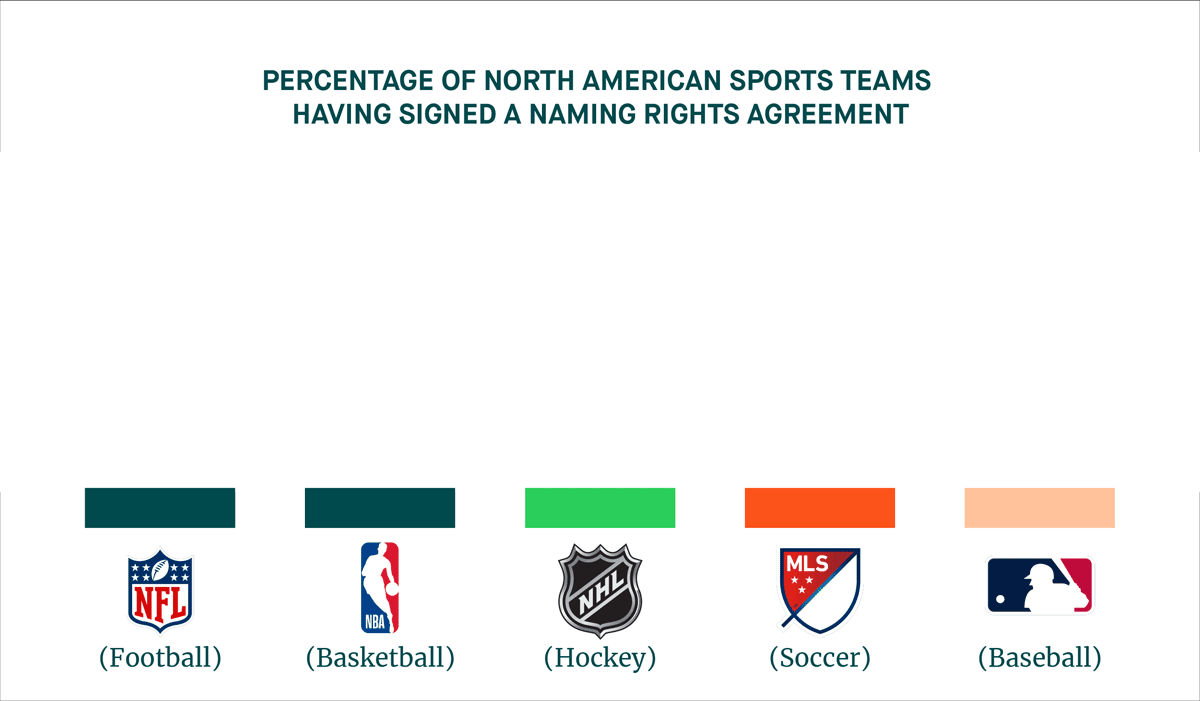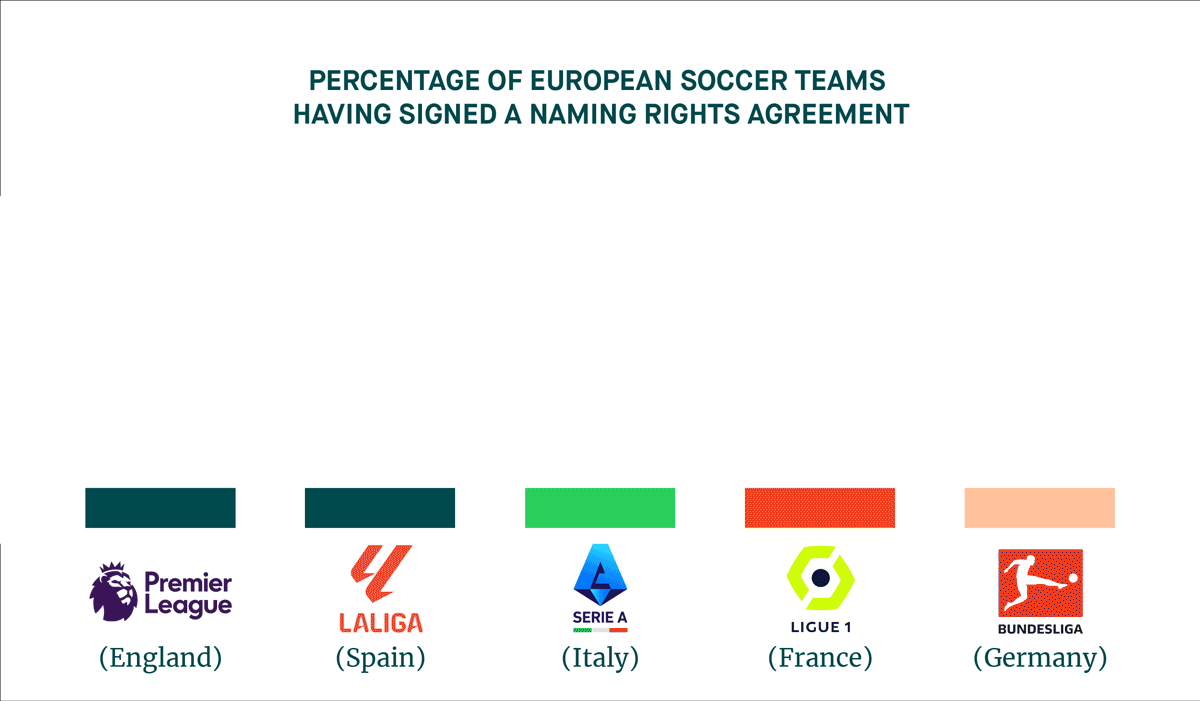Although the more nostalgic among us were recently celebrating the announcement of a third film (and sequel) of In a galaxy near you (Dans une galaxie près de chez vous), a sci-fi series on Quebec TV, sports fans might be disappointed if the arena near them ever ends up being renamed.
In the first instalment of our series of articles on sports law, we examined various issues surrounding team branding. We would now like to focus on the naming of stadiums, arenas and our favourite sports venues, which often feature corporate names or trademarks.
In a press release dated August 15, 2023, the Montreal Canadiens announced that their training centre, previously known as the Bell Sports Complex, would be renamed the CN Sports Complex.
The reasons for this change have to do with naming rights agreements. These agreements stem from a “marriage of values” for commercial purposes between two brands that share a number of clearly defined objectives.
In this article, we will answer two fundamental questions: how do these agreements work and what are the objectives?
Defining a naming rights agreement
A naming rights agreement is a contract between a company and an operator or owner of a venue, building, event or facility. Under such agreements, a company obtains the exclusive right to name a venue, building, event or facility by making royalty payments or providing other benefits. This enhances the company’s visibility because its name or brand is now associated with the venue, building, event or facility. In return, the owning or operating entity is paid a royalty that helps to support its activities or boost its profitability. Naming rights agreements are commonly used for naming stadiums, arenas and sporting events.
It should be noted that naming rights agreements are different from sponsorship agreements. A sponsorship agreement is another type of arrangement under which a company can obtain visibility associated with an event. For example, the Royal Bank of Canada entered into a sponsorship agreement with the Montreal Canadiens to display its logo on the team’s jerseys. One of the main differences between sponsorship agreements and naming rights agreements is their duration. A sponsorship agreement has a shorter term (usually 3 to 5 years), whereas a naming rights agreement may run from 5 to 20 years, sometimes longer.
An ever-growing market
Underscoring the importance of naming rights agreements, over 90% of the teams in North America’s five largest professional sports leagues have signed one:

In Europe, the most popular sport by far is soccer. The status of naming rights agreements in European soccer is not comparable to the North American situation, but everything indicates that their popularity will continue to rise in the coming years:

What are the primary objectives of naming rights agreements?
Although most North American sports teams have entered into naming rights agreements, the frequency with which stadiums or sports venues are renamed remains low due to the long-term nature of these arrangements.
Companies are prepared to invest considerable sums in these agreements. There are various reasons for this, including the desire to partner with an organization that shares certain values, or to reap the benefits of a unique financial tool, or to consolidate business interests or gain a foothold in a given market.
In 2017, the Air Canada Centre, which hosts the Toronto Maple Leafs (NHL) as well as the Toronto Raptors (NBA), was renamed the Scotiabank Arena. Under this agreement, Scotiabank will reportedly pay $40 million annually over 20 years to maintain the new name. At the time, this was a record amount.
But the new (publicly disclosed) record is now held by the Crypto.com Arena, formerly known as the Staples Center, home to two NBA teams (LA Lakers and LA Clippers), together with the LA Kings (NHL). In 2021, Crypto.com agreed to pay approximately $50 million annually for 20 years.
In addition to the recent CN Sports Complex name change, Uniprix Stadium,which hosts the Omnium National Bank tennis tournament, became IGA Stadium back in 2018.
When the IGA Stadium agreement was concluded, Eugène Lapierre, Senior Vice-President at Tennis Canada, offered this assessment: “IGA attaches a good deal of importance to healthy eating, while for our part, we’re working hard to develop tennis in Canada. Our objectives are in sync.”1 Similarly, France Margaret Bélanger, President, Sports and Entertainment of Groupe CH, confirmed this marriage of values between the Montreal Canadiens and CN: “CN is not only a world leader in transportation, but also an iconic Canadian company which, like the Canadiens, has been based in Montreal for over a century.”2 It is clear that these companies were carefully selected on the basis of “common ground”, which implies a sharing of values between them and the operators of the IGA Stadium and the CN Sports Complex.
Choosing the right partner: a key strategic issue
Choosing the right company whose name or brand will be publicly displayed is essential. An owner or operator will want to avoid any association with a company whose identity is incompatible or whose values are not in alignment.
Several examples of dubious partnership choices spring to mind:
The Chicago White Sox’s baseball stadium changed its name from U.S. Cellular Field to Guaranteed Rate Field in 2016. This change sparked controversy, drawing ridicule from the public. The problem was that the White Sox are a high-profile brand, known throughout the sports world and enjoying immense prestige. In contrast, Guaranteed Rate was a local company, unknown to many baseball fans, and was simply unable to bear the weight of a storied franchise such as the White Sox. The social networks lit up at the time, adding to Guaranteed Rate’s visibility. The company certainly achieved its objective of “getting its name out there”!
Away from the sports realm, another relevant example is the Toronto Transit Commission (TTC), which operates that city’s mass transit system. In April 2023, the TTC announced that it wanted to look into the possibility of selling the rights to name train or subway stations – an idea that it had initially announced in 2011. The outcry was immediate: “This will turn the TTC into a joke”, said Rami Tabello, a representative of the Toronto Public Space Initiative. “It's going to turn our civic identity and put a price tag on it. We need to say that our city is not for sale.”3 Just imagine the conductor’s announcement: “Next stop, Pepsi Station”!
Structuring a naming rights agreement
Although the parties to naming rights agreements are free to negotiate their own terms and conditions, certain provisions should be included to ensure a good long-term relationship.
A naming rights agreement should be comprehensive and detailed enough to enable both parties to “uncouple” quickly and easily if a disturbing or controversial event occurs that could have an adverse impact on their brand image or reputation. As a general rule, such agreements include a termination clause in case one party defaults or is in breach of contract. It is therefore important to clearly identify what constitutes a default or a breach of contract.
Along with the digital boards, certain spaces on the ice of hockey rinks or advertising on helmets, crests or jerseys, the rights stemming from a naming agreement are valuable assets that can be monetized by means of various financial instruments. Not only can these agreements be monetized as soon as they are signed, but they can also be transferred for a consideration to a third party, such as an alternative investor. Hence the importance of ensuring that naming rights agreements are flexible and transferable, thereby facilitating third-party transfers and monetization. As an additional type of financial instrument, naming rights agreements provide immediate access to cash flows.
Intellectual property and trademark rights: what precautions should be taken?
Naming rights agreements often facilitate the creation of new intellectual property linked to the joint use of brands. According to trademark law, the owner of a brand must, and is generally assumed to, exercise control over the products and services associated with the brand. In addition, when a new form of use extends to new services stemming from a naming rights agreement, it is advisable to verify whether the brand’s trademarking is sufficient or should be extended. Here is another point to consider: when the naming rights agreement expires, the chosen partner must not have permanently acquired rights to the brand. These agreements, therefore, must carefully circumscribe property rights as well as the terms and conditions governing intellectual property.
It is also important to outline the civil liability arising from use of the brand. Considerations include compensating the brand owner for the partner’s use of the brand and, conversely, compensating the partner in the event that the brand infringes third-party-owned intellectual property. In any event, the brand owner cannot stand idly by if the user goes beyond what is permitted in the agreement (this would amount to breach of contract).
North America and Europe: two different realities
Naming rights agreements generate significant revenues for sports teams. A team unable to find the right partner may find itself at a disadvantage vis-à-vis other competitors in its league or even compared to other sports.
This is the daunting reality facing a number of European soccer clubs, which are having a harder time finding partner companies for naming rights agreements than sports teams are in North America.
One British example involves London-based Tottenham Hotspur, which has been unable to find a co-contractor to enter into a naming rights agreement for its new stadium since 2019. The team is now in serious financial difficulty and is attempting to host events other than soccer (concerts, boxing, NFL games, etc.) to make up for its revenue shortfall.
In Europe, naming rights agreements are not as widespread as they are in North America. This is primarily due to the fans’ reaction. In Europe, soccer boasts a tradition-steeped history: fans tend to be opposed to change or to the idea of “selling” an iconic stadium to a company.
On the other side of the Atlantic, marketing icons are often linked to companies that have signed naming rights agreements.
To understand this phenomenon, consider the city of Pittsburgh and the Steelers’ football stadium, which was named Heinz Field for over 20 years under an agreement involving (unsurprisingly) the Heinz company. The stadium was also home to two gigantic Heinz ketchup bottles mounted atop the scoreboard:
The Heinz agreement expired and the facility was renamed Acrisure Stadium in July 2022; the ketchup bottles were removed. Steelers fans were soon calling for the ketchup bottles to be brought back—in their eyes, the gigantic bottles were an emblem of the team. Art Rooney II, the team’s legendary owner, acceded to the fans’ demands earlier this year: one of the bottles was reinstalled above a gate outside the stadium.
It should be noted that the Heinz company was founded in Pittsburgh in 1869 by Henry J. Heinz; it is still headquartered there. In Pittsburgh, the Heinz family is both emblematic and iconic. For local residents, Heinz is much more than a brand of ketchup or a food processing company: it is a key part of their history and culture, interwoven with the social fabric. The Heinz ketchup bottles towering over the football stadium were not just a marketing ploy; they were also a cherished symbol for the community and the city of Pittsburgh.
Conclusion
Unbeknownst to many of us, the impacts of naming rights agreements can be felt discreetly in our day-to-day lives. In addition to being a vehicle for conveying emotions and exerting an influence on our experience of certain events and places, these agreements drive our emotional attachment to certain sports properties.
- Pierre Durocher, Le stadium Jarry change de nom, Le Journal de Montréal, April 16, 2018 (https://www.journaldemontreal.com/2018/04/16/le-stadium-uniprix-devient-le-stadium-iga).
- Montreal Canadiens, Montreal Canadiens' practice facility to be named CN Sports Complex, media release, August 15, 2023 (https://www.nhl.com/canadiens/news/montreal-canadiens-practice-facility-to-be-named-cn-sports-complex-345595466).
- CBC News, TTC deal opens door to station naming rights, July 6, 2011 (https://www.cbc.ca/news/canada/toronto/ttc-deal-opens-door-to-station-naming-rights-1.1023460).
